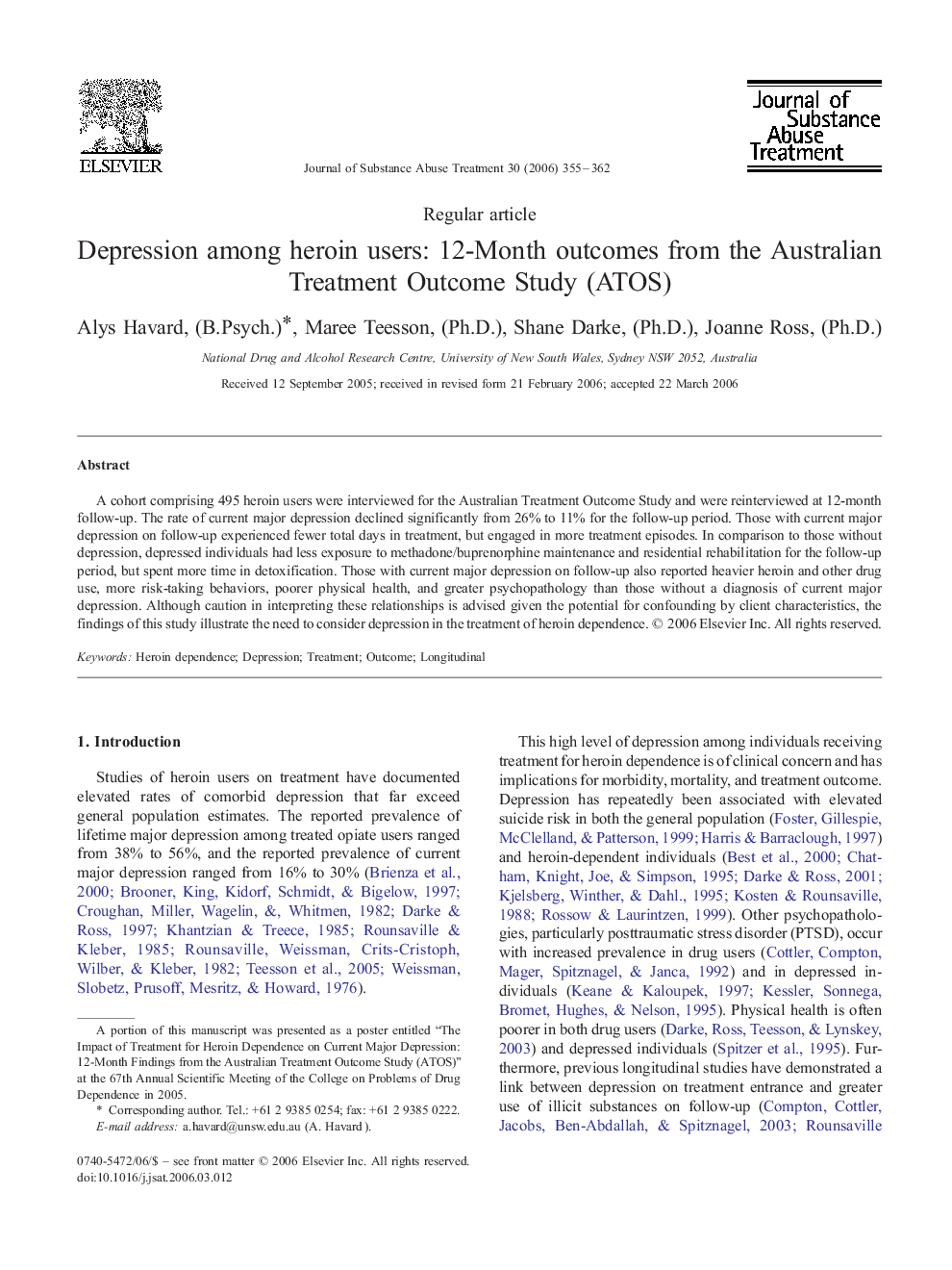| Article ID | Journal | Published Year | Pages | File Type |
|---|---|---|---|---|
| 328608 | Journal of Substance Abuse Treatment | 2006 | 8 Pages |
A cohort comprising 495 heroin users were interviewed for the Australian Treatment Outcome Study and were reinterviewed at 12-month follow-up. The rate of current major depression declined significantly from 26% to 11% for the follow-up period. Those with current major depression on follow-up experienced fewer total days in treatment, but engaged in more treatment episodes. In comparison to those without depression, depressed individuals had less exposure to methadone/buprenorphine maintenance and residential rehabilitation for the follow-up period, but spent more time in detoxification. Those with current major depression on follow-up also reported heavier heroin and other drug use, more risk-taking behaviors, poorer physical health, and greater psychopathology than those without a diagnosis of current major depression. Although caution in interpreting these relationships is advised given the potential for confounding by client characteristics, the findings of this study illustrate the need to consider depression in the treatment of heroin dependence.
